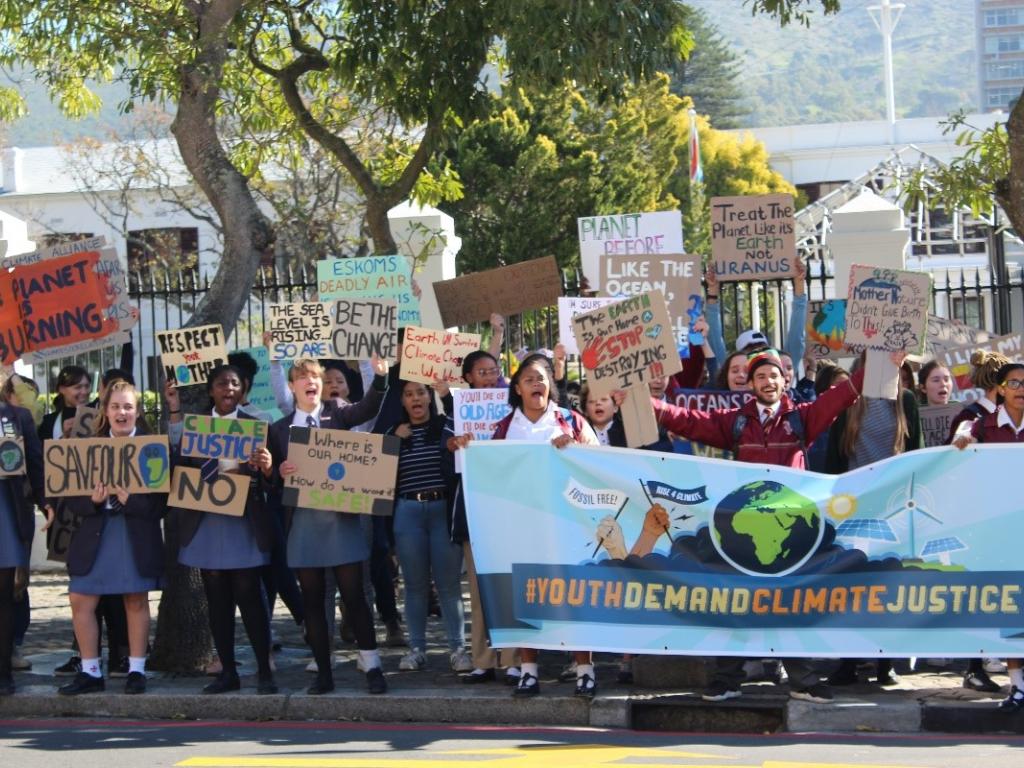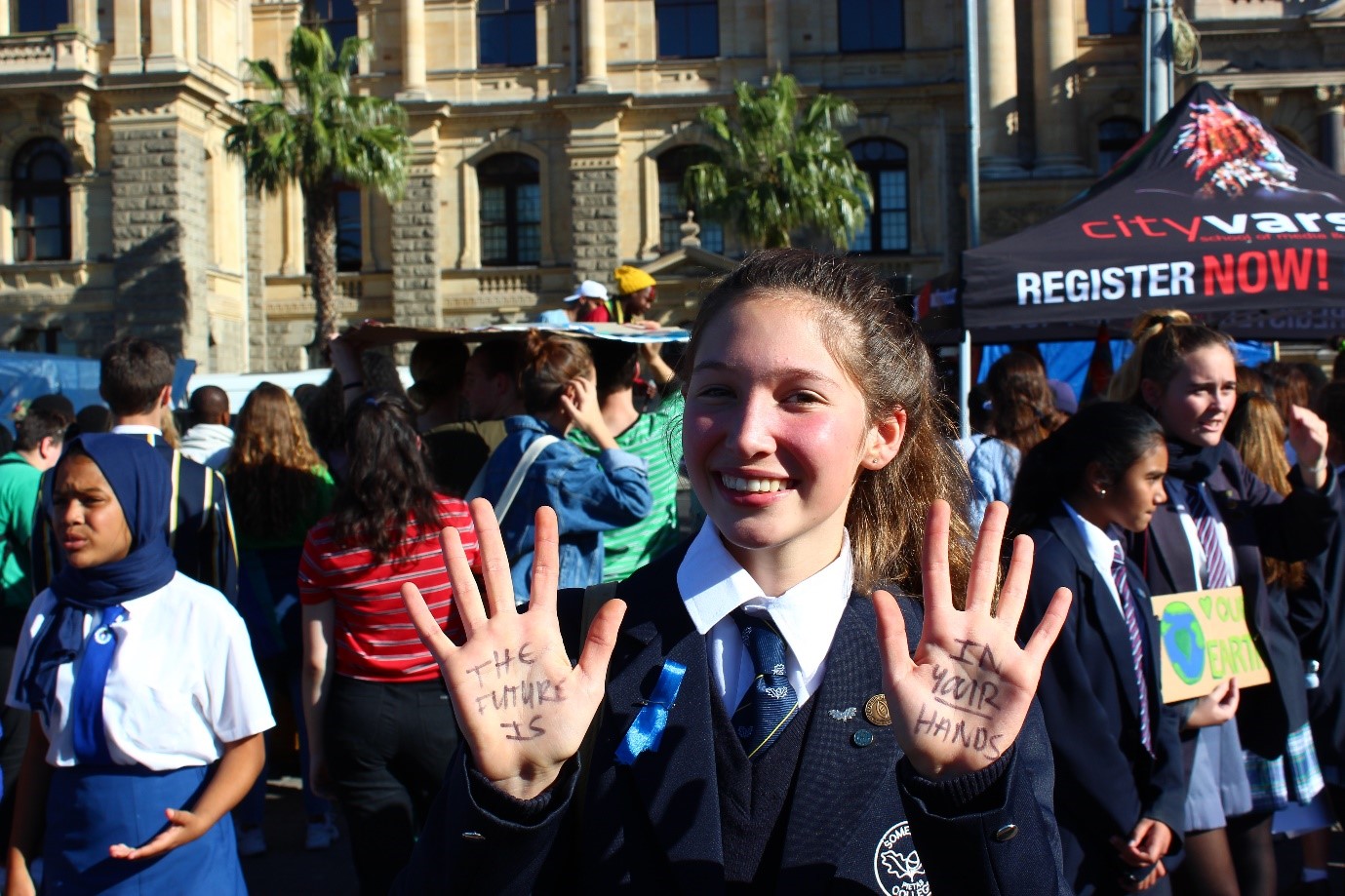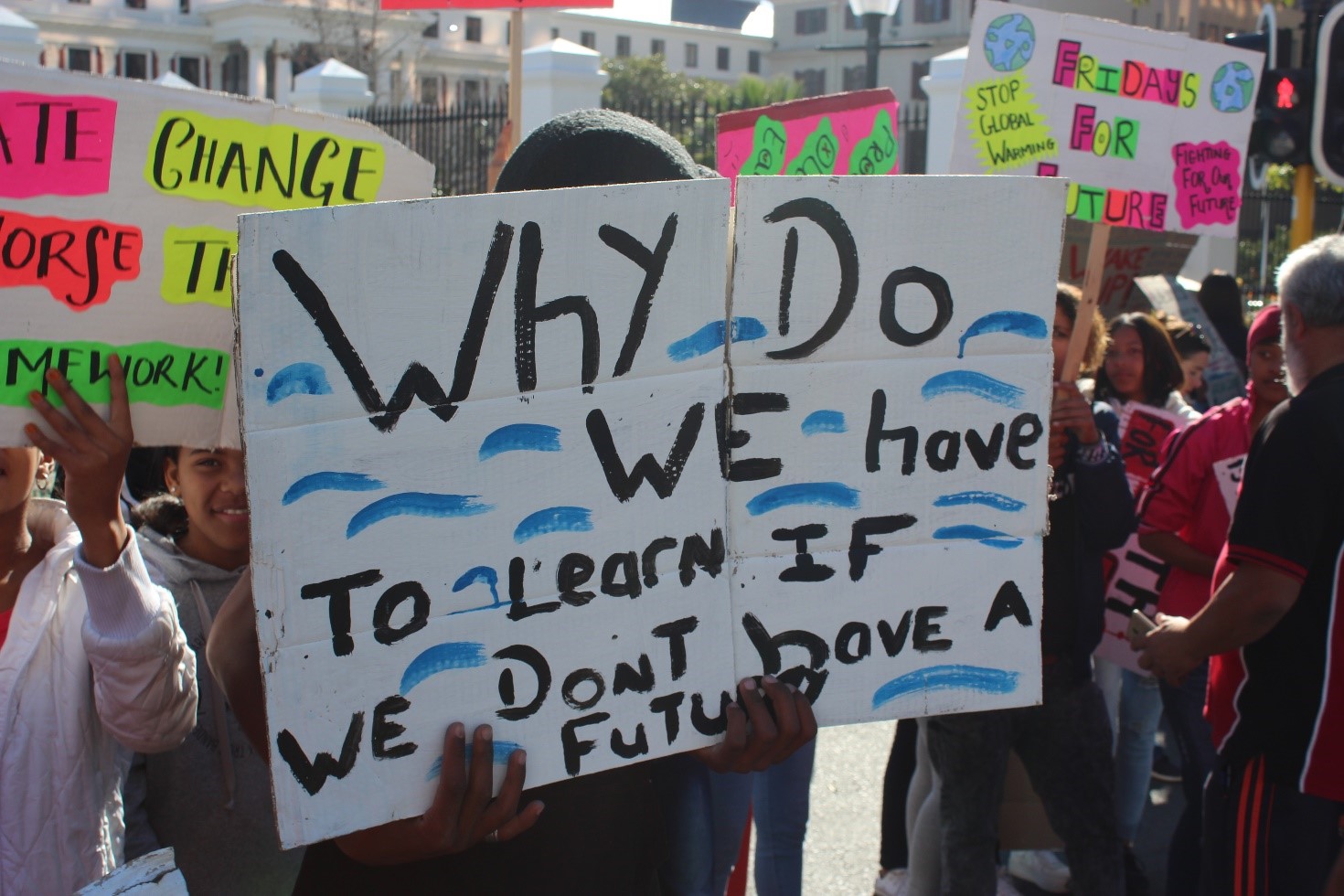Cape Town youth climate strike: a demonstration of inter-generational injustice

by Leigh Cobban

And they were cute! It was uplifting to see them try with such energy and passion to change the bleak future they face, when the rest of us seem to have lost hope. The 2050 and 2100 milestones typically used to explain climate risks really mean something to this generation. When they’re in their 40s, they will have witnessed the extinction of half of Africa’s birds and mammals, and ice-free summers in the Arctic. Hopefully, they will also see emission cuts of 100% by this time to avoid a total climate breakdown. They will experience more extreme weather events such as droughts, floods and heatwaves than anything we have known. They’ve barely contributed to the emissions that have created this new reality, and they have little power or agency to stop them.
Daunted by this grim view of the future, high schoolers are increasingly taking to the streets. The Fridays for Future strikes, popularised by Greta Thunberg’s bold stance and statements, are gaining global momentum.

The ACA Youth League (for those under 24 years old) is striving to raise awareness about the climate crisis in Africa, and to put pressure on government – through schools events, river clean-ups and marches such as this – to take urgent action. Noa explained that the group drew inspiration from Greta Thunberg and her call for youth action in March this year. Although the League works with the Fridays for Future movement and Extinction Rebellion, Noa said that they are not advocating skipping school because they believe in the importance of education in South Africa, and the need to develop the minds “to create the solutions needed”.

On Friday 14 June, learners marched from parliament to city hall, shouting chants like “You’ll die of old age, we’ll die of climate change”, drawing confused looks from pedestrians and the odd hoot of support from passing cars.
At city hall, the crowd gathered around a platform where high schoolers gave impassioned speeches calling for action and handed over a memorandum to two city officials which outlined four demands for government:
- Declare that there is a Climate Emergency; and so,
- Put a moratorium in place on all new coal, gas and oil mining licences.
- Convert the electricity sector to run off 100% renewable energy by 2030.
- Create a mandatory education curriculum about the effects of the Climate Crisis on our country.
The need for this last point was made evident during ACDI’s Chairs and Fellows seminar day in June, where Dr Debbie Sparks from the Energy Research Centre spoke about her work with Dr Jiska de Groot. Their research looked at perceptions and understandings of climate change across wealth quintiles of schools in Cape Town. These schools spanned (1) underprivileged communities who pay no school fees, (2) schools where learners pay some school fees, representing middle income communities, and (3) schools that pay high school fees, representing the wealthiest communities. Their research revealed major differences across these quintiles. At no-fee schools, a high proportion of learners had never heard of climate change, and the few that had, did not understand it. Learners from no-fee schools also relied almost exclusively on their teachers for climate change information (as opposed to learners from wealthier schools, who got additional information from their parents, peers, and/or other sources).

I asked Noa about the support they needed from academics and institutions such as ACDI. She explained that ACA was taking most of its inspiration from other youth movements, seeing that there was not a strong academic voice in the media. Yet considering that academics carry much influence on government and the general public through their positions and knowledge, future collaboration is necessary. “Government needs to know our demands are being backed by researchers and scientists. We are still building our education – they already have that education”, Noa explained.
Noa was more optimistic about support from students at universities as they face the same pressing issues, but also have legal rights. She explained that the ACA had been trying to engage with students at Universities of Cape Town and Stellenbosch and she was hopeful for more support as the ACA leadership (many currently in matric) entered university. Her point resonated on Youth Day, when Nyiko Ashley Mabasa, the SRC Secretary General at Wits University, spoke about the role of youth in dealing with climate change on SAFM.
I left the event hoping that we could shift our perception of the youth climate strikes as not being merely ‘cute’, but as being a powerful force of change – as indeed they have been in other parts of the world. Already, President Ramaphosa mentioned in his State of the Nation Address that he “heard the voices of young people” who marched on the 14th of June.
If translating our journal articles from convoluted academic-jargon and speaking out more in popular media supports their call for change, then let’s take part in this endeavour.
On this note, ACDI is planning to run workshops with our staff on science communication in different channels – for print, radio, TV and online media – in the coming months. If you would like to be part of these training workshops (as a participant or a facilitator), please get in touch with me (leigh.cobban@uct.ac.za).